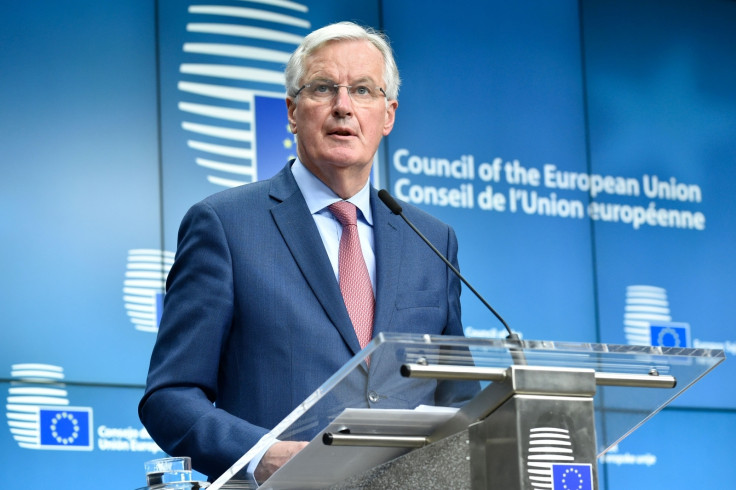Brexit: EU takes 2 minutes to offer UK status quo transition without representation
KEY POINTS
- The bloc is offering a status quo 21-month transition period.
- UK will be subject to all existing and new EU laws during the transition.
- EU member states took just two minutes to endorse the negotiating guidelines.
The EU has said it is offering the UK a "status quo transition without national representation" from March 2019 until 31 December 2020. The 27 member states took just two minutes to endorse the negotiating guidelines, demonstrating a unity in stark contrast to the political chaos facing Theresa May.
Chief EU negotiator Michel Barnier is now able to begin transition negotiations with the UK.
The EU is insisting that the UK abide by all existing rules during the transition period. This will include any new rules brought into place while the UK is transitioning out of the bloc. Barnier said the UK will not be able to block any new rules during the transition period.
The UK will also remain under the jurisdiction of the European Court of Justice during the 21-month transition period, one of the main grievances of Brexit wing of the Tory party. Barnier also explained that the rules of the single market will still apply, including freedom of movement. "The single market cannot be à la carte," Barnier warned.
The guidelines are likely to cause further conflict within the Conservative party. May is struggling to hold her government together as hardline Brexiteers within her party push for an uncompromising negotiating stance with Brussels and pro-EU ministers campaign for a soft, minimally disruptive Brexit.
The EU's guidelines also note that work should continue on finding a solution to the Irish border question, which proved a significant obstacle during the first round of negotiations. It was eventually agreed that there would be full regulatory agreement on the island of Ireland, though this is a contradiction of the UK's oft-repeated plans to leave the single market and customs union.
During the transition, the UK will not be involved in any EU decision-making processes. While representatives will be allowed to sit in on some EU meetings, these cases will be limited, Barnier said, though the EU will consult the UK on any decisions regarding the country.
Theresa May's official spokesman said that while there was "broad agreement on the principle" there were differences on "specific detail", according to the BBC.
Barnier noted that progress was being made on internal EU discussions over the future EU-UK trade agreement, and the European Council should make a decision in March. However, he stressed it will be very important for the UK to say what it wants from such a relationship.






















